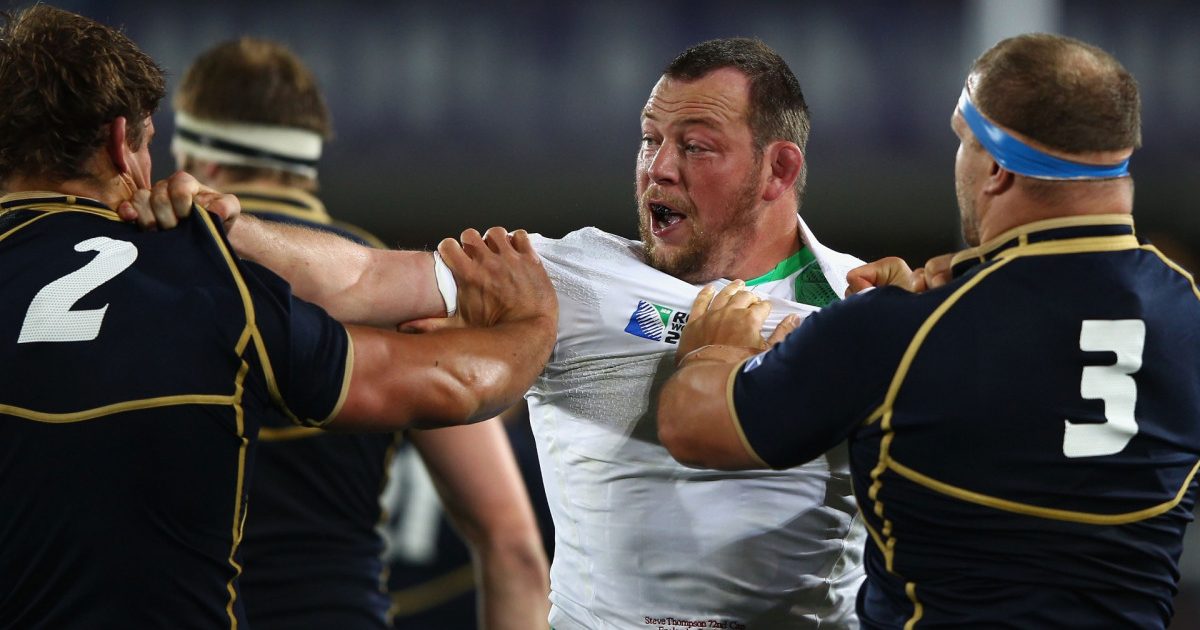Pre-action legal letter listing 24 'failures' delivered to World Rugby as six more ex-players join concussion lawsuit

Retired England and Wales rugby union internationals are among six former players suffering from concussion-related health problems to have joined a lawsuit against the game. A pre-action letter of claim was on Thursday morning delivered to World Rugby, the Rugby Football Union and Welsh Rugby Union on behalf of nine players being represented by Rylands Law.
In addition to England forwards Steve Thompson and Michael Lipman and Wales flanker Alix Popham, 30-year-old Wales U20s centre Adam Hughes and 44-year-old England U21s back row Neil Spence have also chosen to sue.
Four of the six new claimants have asked to remain anonymous, but the PA news agency understands they include one former England and one former Wales international. Thompson revealed last week that he has no recollection of taking part in the 2003 World Cup triumph in Australia because of the brain injuries sustained during his career.
The basis of the claim made on behalf of the nine test cases – Rylands Law say they are talking to over 130 more retired players – is that the sport’s governing bodies failed to provide sufficient protection from the risks caused by concussion.
Hughes has been diagnosed with having brain injuries and post-concussion symptoms since his career was ended in 2018, while the remaining eight have been diagnosed with traumatic brain injury, early-onset dementia and probable chronic traumatic encephalopathy (CTE).
“With all the stories coming from the ex-players you cannot rush these things and I will never try to come back quickly again from a concussion"
– @alexlozowski10 talks @chrisjonespress ??? through his recent experience of concussion at @MHR_officiel https://t.co/oruMcPHjpu
— RugbyPass (@RugbyPass) December 16, 2020
CTE is a progressive degenerative disease of the brain found in people with a history of repetitive brain trauma and was previously known as punch drunk syndrome and dementia pugilistica. Rylands Law alleges that the risks of concussions and sub-concussive injuries were “known and foreseeable” and lists 24 failures on the part of World Rugby, RFU and WRU.
The governing bodies have a maximum of three months from the date of acknowledgement of the letter of claim to respond. The letter focuses on “broad allegations” rather than “an exhaustive list of the evidence”. All three have been contacted for comment.
“The claimants allege that the RFU, WRU Ltd and World Rugby owed them, as individual professional players, a duty to take reasonable care for their safety by establishing and implementing rules and regulations in respect of the assessment, diagnosis and treatment of actual or suspected concussive and sub-concussive injuries during match play and training sessions,” the letter says.
“Given the significance of the risk of serious and permanent brain damage as a result of concussive and sub-concussive injuries, it was incumbent on and the duty of the RFU, WRU and World Rugby to take such steps and to devise and implement such rules and regulations as were required in order to remove, reduce or minimise the risks of permanent brain damage as a consequence of such concussive and sub-concussive injuries.”
Richard Boardman of Rylands Law insists some of the test cases will demonstrate the potential harm caused by playing the sport no matter the position. “Last week’s announcement about the condition of some of rugby’s sporting greats has sent shockwaves around the sport. Yet, for many, it was inevitable,” Boardman said.
“What will surprise people when they see the test cases is the age of the players, but also the positions in which they played. You don’t have to be a bruising forward in the middle of the scrum to suffer concussive injuries.”











































